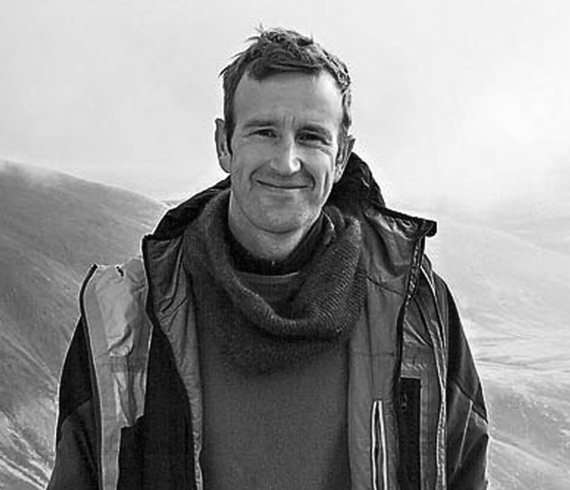Robert Macfarlane, The Old Ways: A Journey on Foot
This week we turn to the third in our series of favorite nature writers and their observations that have shaped the underlying message of the World Ocean Observatory.
Robert Macfarlane is a fellow at Cambridge University in England, frequent essayist and contributor to respected publications, author of several books including “Mountains of the Mind”, “The Wild Places”, “The Old Ways”, and “Landmarks” wherein he mixes keen observation, unusual perspectives, history and literature, and the fascination with the derivations of many words in many languages that reflect the diversity and nuance of how we name natural things.
Here are some excerpts from a chapter on water from “The Old Ways: A Journey on Foot”, he writes:
In Old English the hwael-weg (the whale’s way), the swan-rad (the swan’s way); in Norse the veger; in Gaelic rathad mara or astar mara; in English the ocean roads, the sea lanes… Sea roads are dissolving paths whose passage leaves no trace beyond a wake, a brief turbulence astern. They survive as convention, tradition, as a sequence of coordinates, as a series of waymarks, as dotted lines on charts, and as stories and songs… What you should first realize, to understand the sea roads, is how close the ocean brings far-apart places… in the pre-modern world, the boat was the fastest means of long-distance travel… The second thing to know about sea roads is that they are not arbitrary. There are optimal routes to sail across an open sea, as there are optimal routes to walk across open land. Sea roads are determined by the shape of the coastline (they bend outwards to avoid headlands, they dip toward significant ports, archipelagos, and skerry guards) as well as by marine phenomena. Surface currents, tidal streams and prevailing winds all offer limits and opportunities.
The discovery of sea roads necessitated a radical re-imagining of the history of Europe. Try it yourself, now. Invert the mental map you hold of Britain, Ireland and Western Europe. Turn it inside out. Blank out the land interiors of these countries – consider them featureless, as you might previously considered the sea. Instead, populate the western and northern waters with paths and tracks: a travel system that joins port to port, island to island, headland to headland, river mouth to river mouth. The sea has become the land in that it is now the usual medium of transit: not barrier but corridor… A second consequence is that today’s national boundaries shiver and collapse. Instead of belonging to particular nations that happen to possess coastlines, these outward-facing coastal settlements -from the Shetlands and the Orkneys all the way round and down to Galicia in Spain – become a continuous territory of their own: Atlanticist in nature, sharing culture, technologies, crafts and language. A disperse occidental continent, if you like, whose constituent areas are untied by their common frontage on the same ocean.
“The Old Ways” follows and discovers relationships between such paths, divided into sections called Tracking, Following, Roaming, and Homing, in which Macfarlane observes the elements of earth and water, mixed with figures from the past and stories that illustrate, as he writes,
“the landscape and the human heart… It is an exploration of ghosts and voices that haunt ancient paths, of the tales that tracks keep and tell, of pilgrimage and trespass, of songlines, and their singers…”
From these concepts come the World Ocean Observatory exhortation The Sea Connects All Things. From this history comes the narrative and storytelling that so reveals our fundamental urge to engage our senses and apply our minds to understanding the natural world, to immerse ourselves in land and sea, and to accumulate the bits and pieces of our linear discoveries into most instructive paths, optimal routes, radical new imaginings, uncommon human connections, and inspirational ways forward.
—-
Peter Neill is founder and director of the WORLD OCEAN Observatory, a web-based place of exchange for information and educational services about the health of the world ocean. Online at worldoceanobservatory.org. Peter Neill is author of “The Once and Future Ocean: Notes Toward a New Hydraulic Society” available now.
- Login to post comments
-



